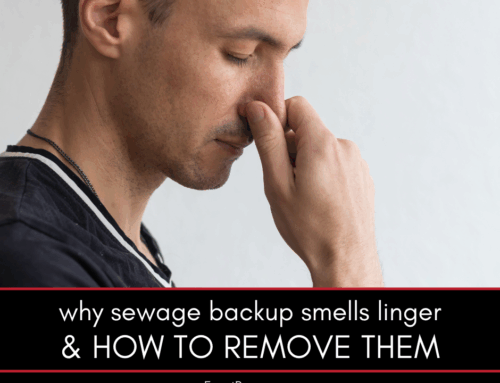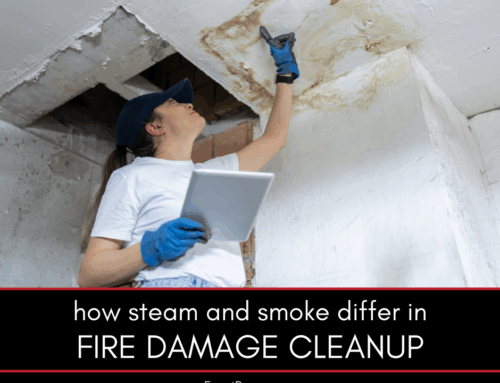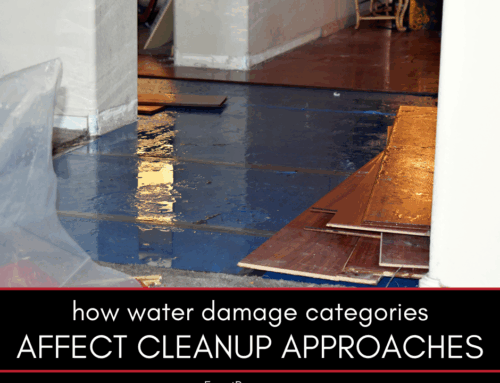Flooding in the basement can be overwhelming and lead to serious damage if not addressed quickly. Knowing the steps to take when you discover water in your basement can help you minimize damage, prevent mold growth, and protect your home. Here’s what to do immediately after a basement flood.
5 Steps to Take When Your Basement Has Flooded
Handling a basement flood promptly is crucial for minimizing water damage. This guide explains:
- Ensuring safety first
- Removing water quickly
- Cleaning and disinfecting surfaces
- Preventing mold growth
- Knowing when to call a professional
Here’s a closer look at each step.
Step 1: Ensure Safety First
Before you do anything else, ensure that the area is safe. Water and electricity are a dangerous mix, so if the water has reached outlets, appliances, or your breaker box, turn off the power to the basement. If you cannot safely reach the circuit breaker, call an electrician for assistance. Additionally, wear protective gear like rubber boots and gloves to avoid exposure to contaminants often present in floodwater.
If your basement has been affected by contaminated water or sewage, it’s important to stay cautious, as floodwater may contain bacteria and other harmful substances. The Federal Emergency Management Agency (FEMA) provides safety tips for handling flood situations, which can help you take the right steps to protect yourself.
Step 2: Remove Water Quickly
Removing water as quickly as possible can prevent additional damage to floors, walls, and belongings. If there’s only a small amount of water, you may be able to use a wet/dry vacuum to remove it. However, for larger floods, consider using a sump pump or calling a water damage restoration service like Exact Recon’s water damage restoration for professional assistance.
Prompt water removal is crucial to minimize moisture retention, which can lead to mold growth and structural damage. Make sure to empty any containers and check surrounding areas to ensure that all standing water is removed.
Step 3: Clean and Disinfect Affected Surfaces
Once the water is gone, it’s essential to thoroughly clean and disinfect all affected surfaces. Floodwater can carry dirt, debris, and harmful bacteria that can pose health risks if not cleaned properly. Use a mixture of hot water and a disinfectant, such as bleach (1 cup of bleach per gallon of water), to clean non-porous surfaces like concrete, tile, and metal.
For carpets, upholstery, and other porous materials that have absorbed water, professional cleaning may be necessary. Consider contacting Exact Recon for professional cleaning and mold remediation to ensure your basement is sanitized and safe. Be sure to wear gloves and masks to protect yourself from contaminants while cleaning.
Step 4: Prevent Mold Growth
Mold can start growing within 24–48 hours after flooding, so it’s important to take steps to prevent its development. Start by drying out the area as thoroughly as possible. Use fans, dehumidifiers, and, if possible, open windows to allow for better airflow. Keep indoor humidity below 50 percent to inhibit mold growth, particularly in closed-off areas where moisture can linger.
The Environmental Protection Agency (EPA) provides guidelines on how to handle mold prevention and cleanup after flooding, which can be helpful if you’re unsure about mold-related risks. Consider using a mold inhibitor on surfaces that were in contact with water, especially in areas like corners or behind furniture.
Step 5: Know When to Call a Professional
If the basement flooding was severe, or if you’re unsure about the safety of the area, it’s best to call a professional restoration company. Specialists in flood and storm damage cleanup have the equipment and expertise to manage extensive water damage, mold remediation, and cleanup. They can also identify and address underlying issues, like poor drainage or foundation cracks, that may have contributed to the flooding.
Professionals offer peace of mind, ensuring that all areas are dried, cleaned, and safe. For recurrent issues, experts can help you implement long-term solutions, such as improved drainage systems or sump pump installation, to prevent future flooding.
FAQ About Basement Flooding
Check out these commonly asked questions about basement flooding. If you don’t see your question here, please call Exact Recon for additional support and we’ll find you the answers you need.
How Can I Prevent My Basement From Flooding?
To prevent basement flooding, make sure your downspouts direct water away from your foundation, clear your gutters regularly, and check that your sump pump is functioning. For more tips on flood prevention, see FEMA’s guide on preparing for floods.
What Should I Do if Flooding Keeps Happening in My Basement?
Recurring basement flooding often indicates an underlying issue, such as poor drainage or foundation cracks. Consulting with a professional restoration company like Exact Recon can help identify and resolve these problems to prevent future incidents.
Is Flood Damage Covered by Insurance?
Flood damage coverage varies depending on your insurance policy. Many policies don’t cover basement flooding caused by natural events like snowmelt or heavy rain. Contact your insurance provider to clarify your coverage and determine if you need additional protection.
How Long Do I Have to Dry My Basement Before Mold Grows?
Mold can start growing within 24–48 hours in moist conditions. To prevent mold, remove water as soon as possible and dry out your basement with fans and dehumidifiers, keeping humidity levels below 50 percent.
Should I Replace Carpeting After a Basement Flood?
Wet carpets can harbor mold and bacteria. If the carpeting can’t be dried within 48 hours, it’s best to remove and replace it. Professional cleaning can also be an option if the water damage is minor.
By following these steps and knowing when to contact a professional like Exact Recon, you can effectively manage a flooded basement and protect your home from lasting damage. Taking quick action ensures a safer, drier, and healthier home environment.
Do You Need a Disaster Remediation Expert in Washtenaw County or Jackson County?
If your home has already been damaged, we can help. Check out our services and call Exact Recon for your free disaster remediation quote today. We offer:
- Water damage restoration
- Fire damage restoration
- Mold removal and remediation
- Fire and smoke restoration
- Sewer cleanup and disinfecting
- Reconstruction
- Wind and storm damage repair










